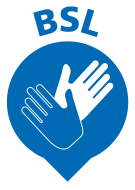Call 999 in an emergency when you think someone’s life is at risk
You should call 999 when someone is seriously ill or they have life-threatening injuries. For example, they’ve suffered a traumatic head injury or they’re experiencing severe blood loss, chest pains or loss of consciousness.
When you call 999, an operator will ask which emergency service you need. In a life-threatening medical emergency, ask for the ambulance service.
Please do not call 999 if it’s not an emergency, as this could delay us from helping someone who needs urgent assistance.
What happens when you call 999
1. Your call
When you call 999 and ask for an ambulance, you will be connected to our ambulance control room team. We’ll ask you for details of the emergency, including:
- The address where you are, including the postcode.
- The phone number you’re calling from.
- What’s happened.
We’ll also ask you for information about the patient, including:
- Their age, sex and medical history.
- Whether they’re conscious, breathing and if there’s any chest pain.
- Details of their injury.
Your answers will help us to give you important first aid advice while our staff are on their way. Asking these questions will not delay our response.
2. Our response
To ensure you access the right health service for your needs, we use a clinical decision support system known as NHS Pathways. This is an advanced clinical triage system that provides us with the ability to identify the medical needs of 999 calls so we can direct patients to the right care.
Your call will be prioritised into one of four categories, depending on the severity of the illness or injury. This will determine the help we provide and how quickly the ambulance gets to you if you need one.
If an ambulance is dispatched, we may also send a community first responder (CFR) who can get to the scene before the ambulance to provide immediate care.
If an ambulance is not dispatched, you may be advised to seek other medical help, such as visiting your local minor injury unit, walk-in centre or GP surgery.
Find out more about the four categories and response times.
3. While you wait
If an ambulance is dispatched, you can help in a number of ways before the ambulance arrives:
- If you’re on the street, stay with the patient until help arrives.
- Call us back if the patient’s condition changes.
- Call us again if your location changes.
- If you’re calling from home or work, ask someone to open the doors and signal to the ambulance crew when they arrive.
- If you can, write down the patient’s GP details and collect any medication they’re taking.
- Tell us if the patient has any allergies.
And try to stay calm. Our staff are there to help and will give you advice on how to assist the patient. If it’s a life-threatening situation, a member of our control room team will usually stay on the phone until the ambulance arrives.
4. When the ambulance arrives
As soon as our paramedics arrive at the scene, they will assess the patient’s clinical condition and give the necessary treatment. If emergency care is needed, the patient will be taken to a hospital Emergency Department or specialist treatment centre straight away.
If the patient does not need emergency hospital treatment, our paramedics can often provide the necessary treatment at the scene and advise you on any further action you should take, such as contacting your GP surgery.
If you speak to a member of our control room team and they advise that the patient does not need emergency care, they can arrange for a paramedic or triage nurse to call you back.
They will assess the patient’s condition and then recommend the best course of action, such as visiting a GP, pharmacy or community-based care service.
For non-urgent medical advice, contact your GP practice, out-of-hours service, walk-in centre or pharmacist, or contact NHS 111 online at 111.nhs.uk or call them on 111.
